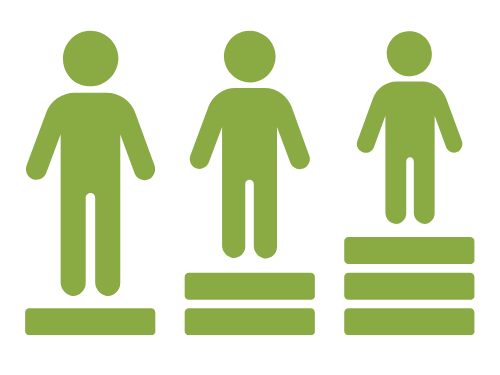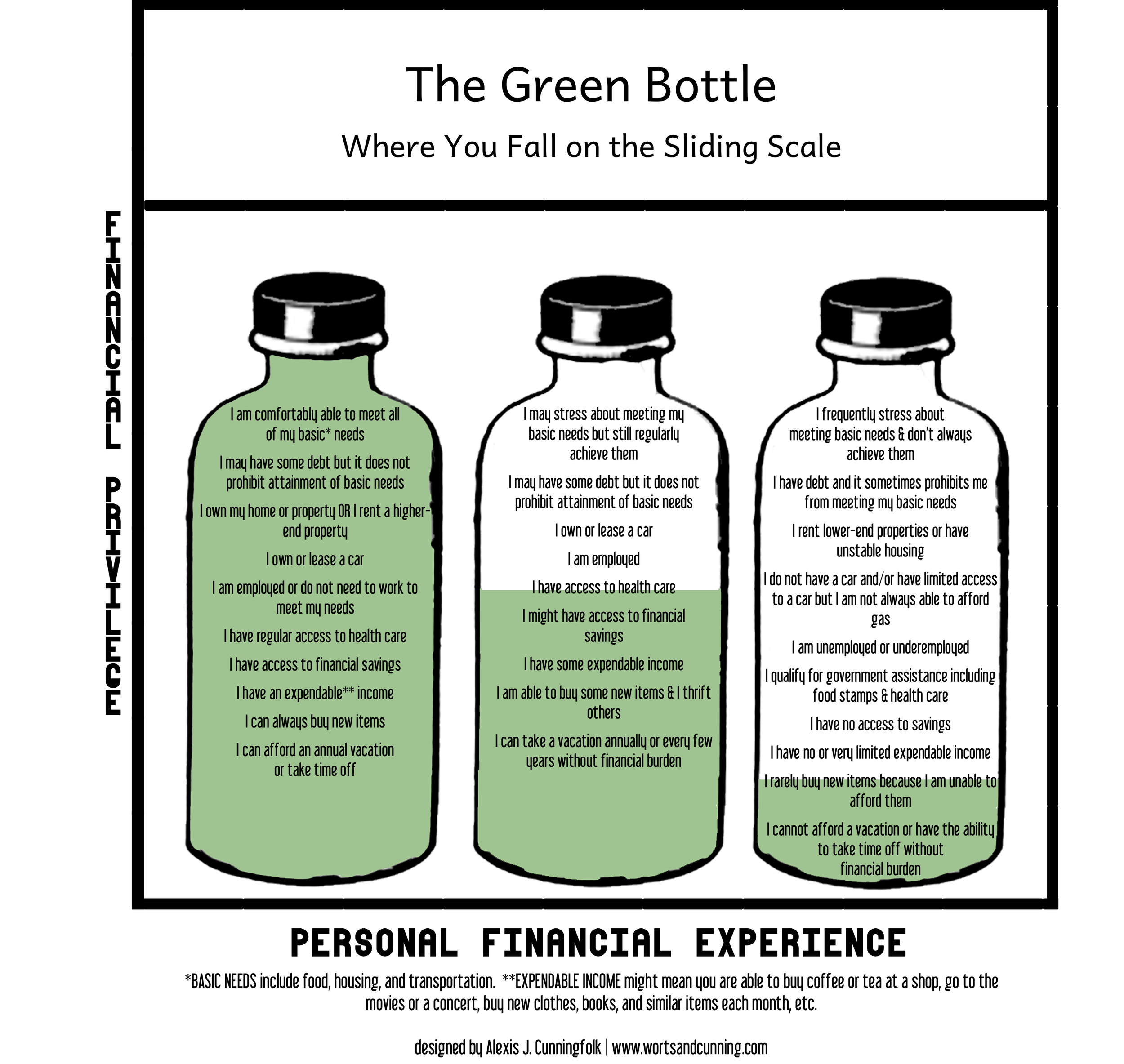WHAT IS SLIDING SCALE PRICING?
Sliding scale is a tool used to help build economic justice.
When used properly, a sliding scale allows a business to set price points at varying levels based on the financial circumstances of each participant. The higher price tag typically indicates the true cost of an offering, while the lower price tag offers entry points for individuals facing financial barriers. Thus, everyone is given the opportunity to access the same resources, without their participation resulting in financial hardship.
Sliding scale is NOT about paying what you think a service SHOULD cost. It is about paying according to your true available resources, and it only works through active and honest participation when determining where you fall on the scale in terms of financial privilege.
HOW MUCH SHOULD YOU PAY?
Being honest about your financial privilege when choosing a sliding scale price tag is important. Choosing the lower price when your financial situation would allow otherwise, actively decreases our ability to operate and to offer entry points for those truly facing financial hardship.
Higher Price Point:
Would paying the higher price have a noticeable impact on your life? If the answer is no, then you experience financial privilege and land on the high end of the sliding scale.
Would paying the higher price be do-able, but you would have to cut back on “non-essentials” for a short while; like eating out or buying a new outfit? This lands in the temporary sacrifice category. If paying the higher price will not have a long term impact on your life, or prevent you from accessing essentials, consider choosing one of the higher or mid range price points.
Lower Price Point:
Would paying the higher price mean you would not be able to participate or that you would have to skip paying for any essentials, such as food, rent, utilities, medical bills, transportation, childcare, etc? If the answer is yes, then you are experiencing financial hardship and land on the low end of the sliding scale.
Participation at HOEC should NEVER result in financial stress or loss of access to essential services. You should always choose the lower end of the sliding scale and / or inquire about our Workshop Fee Waiver Program when applicable.
EXAMINING FINANCIAL PRIVILEGE
Thinking about financial privilege is not meant to cause stress or promote feelings of guilt. It is simply about being aware of the resources we have access to and recognizing that others may not have the same supports available to them. Determining financial privilege is complex, and income level is not the only factor. Other circumstances such as access to things like generational wealth, healthcare, housing, transportation, education, & savings; costs related to disability, illness, care giving, or debt; along with privilege related to race, gender, class background, employment status, age, and so much more, all play a role in determining financial privilege.


